One of the biggest opponents of China may be the biggest wall between a full-fledged Pakistan-China alliance, says a report by the Washington-based US Institute of Peace (USIP).
The report titled, "The Future of the China-Pakistan Military Relationship", digs into the current status of relationship between Pakistan and China, terming it at a "threshold alliance", arguing that Washington may prevent Pakistan from extending its bilateral cooperation and relationship with Beijing, being one of the biggest opponent.
"Pakistan-China alliance may not lead to a fully-fledged future alliance, potentially due to China's own missteps, or due to opponents' active measures to arrest the relationship," it said.
One pivotal finding of the report highlights that during the year 2015, a decline in China-Pakistan relationship was observed.
However, the same year, the visit of President Xi Jinping to Islamabad, introduction of the China-Pakistan Economic Corridor (CPEC) as a flagship project and announcement of sale of eight submarines to Pakistan, negated the previous observations.
"Now, in less than a decade, the China-Pakistan military relationship has advanced from an episodic partnership to a threshold alliance," the USIP report maintained.
Currently, Pakistan's major defence equipment is increasingly sourced from China, especially the power projection and higher-end combat strike capabilities. And in the process, Pakistan continues to let go of older US and European origin platforms.
While the report expresses its observations on US's concerns over the threshold alliance between Pakistan and China, it highlights that much more is needed for a fully-fledged alliance, which would include Beijing granting Islamabad more military aid and access to sensitive systems such as J-20 stealth fighter or nuclear-powered attack submarines.
"A final signal might be the Chinese Navy deploying maritime reconnaissance assets in Gwadar," the report stated.
While the coziness between Pakistan and China seems pretty open in the public eye; both sides have categorically denied that Pakistan may be drifting into Beijing's camp.
"Both sides have explicitly denied that Pakistan is drifting into Beijing's camp and have eschewed pressures forcing them to choose between relations with China and the West," the report maintained.
But there are many factors that may play a role in reverse trajectory to the Pakistan-China military relationship and may cause friction on the bilateral political front as well.
This includes China's treatment of the Uyghurs, a Turkic Muslim minority in Xinjiang province, a topic which has been debated globally and also a point on which, Pakistan's political leadership has struggled every time it has been asked to give its point of view.
Another big factor is the fact that Beijing may not continue rescuing Pakistan from its shortcomings on the economic front by injecting money into its economy or pursuing economic and military investment in Iran at Pakistan's expense.
This will also play a role in weariness of China and may force it to think twice before injecting any more investments, financial bailout support or military investments into Pakistan.

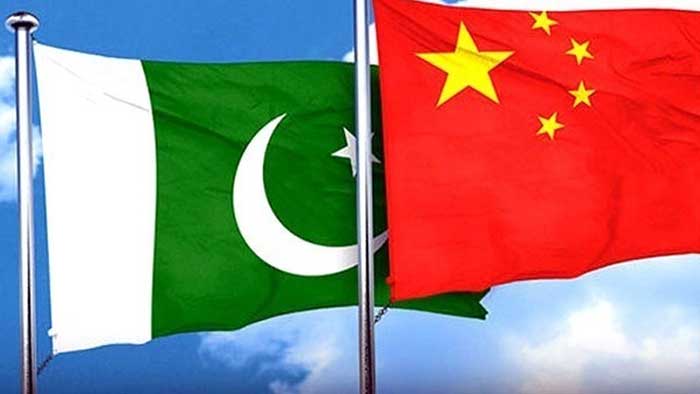
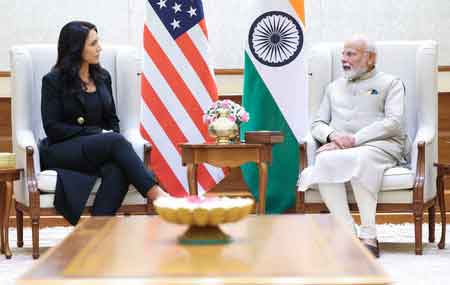
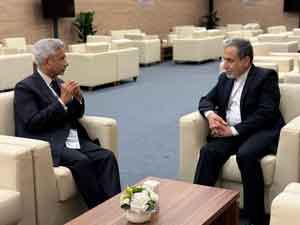
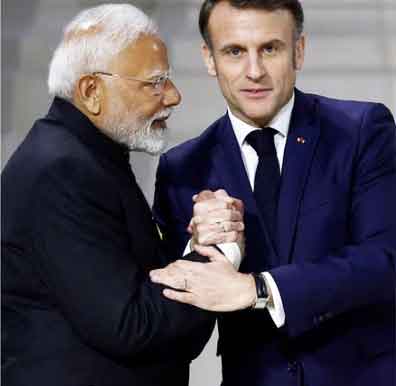
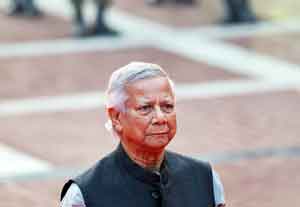


Tripura CM Saha holds key meeting with BJP, IPFT and TMP leaders
Tripura Chief Minister Manik Saha on Friday held an "important" meeting between the leaders of ruling BJP and its two allies – Tipra Motha Party (TMP) and Indigenous People's Front of Tripura (IPFT) and discussed various political and developmental issue, sources said.
HM Amit Shah's meeting sends a clear message: Not a drop of water to Pakistan
A high-level meeting was held on Friday at the residence of Union Home Minister Amit Shah regarding the suspension of the Indus Waters Treaty. The 45-minute meeting between the Home Minister and Union Jal Shakti Minister C.R. Patil focused on exploring ways to halt the flow of water to Pakistan.
Tripura: TMP chief urges Centre to adopt 'stronger policy' against B'desh
Ruling BJP’s ally Tipra Motha Party (TMP) founder-chief Pradyot Bikram Manikya Debbarma on Friday urged the Central government to adopt a stronger policy stance towards Bangladesh, accusing the neighbouring country of encouraging fundamentalist forces targeting Hindu minorities.
Pahalgam attack: More countries express solidarity with India, offer support in fight against terrorism
Ambassadors of Israel, Egypt, Argentina, and Nepal met External Affairs Minister (EAM) S. Jaishankar in New Delhi on Friday, expressing solidarity with India in its fight against terrorism following the heinous terror attack in Pahalgam.
Tripura CM directs SPs and DMs to remain vigilant about Pakistani nationals
Tripura Chief Minister Manik Saha on Friday directed the Superintendents of Police (SPs) of all eight districts to regularly share necessary inputs with the Chief Minister’s Secretariat regarding the presence of any Pakistani nationals in the state, officials said.
US supports India's 'hunt' for those behind 'horrific Islamist terrorist attack' in Pahalgam, says Gabbard
Tulsi Gabbard, Director of National Intelligence (DNI), on Friday said that the United States supports India's "hunt" for the perpetrators of the "horrific Islamist terrorist attack" in Pahalgam that took place earlier this week.
Tehran stands ready to 'forge greater understanding' between India and Pakistan: Iran FM Araghchi
Citing its good relations with both India and Pakistan, Iran on Friday said that it stands ready to "forge greater understanding" between New Delhi and Islamabad following the Pahalgam terror attack, earlier this week.
PM Modi's action will act as deterrent against any fresh attempts to harm India: Tripura CM
Tripura Chief Minister Manik Saha on Friday denounced the Pahalgam terror attack, asserting his staunch belief that Prime Minister Narendra Modi's decisive action will act as a strong deterrent against any future attempts by terrorists to harm India.